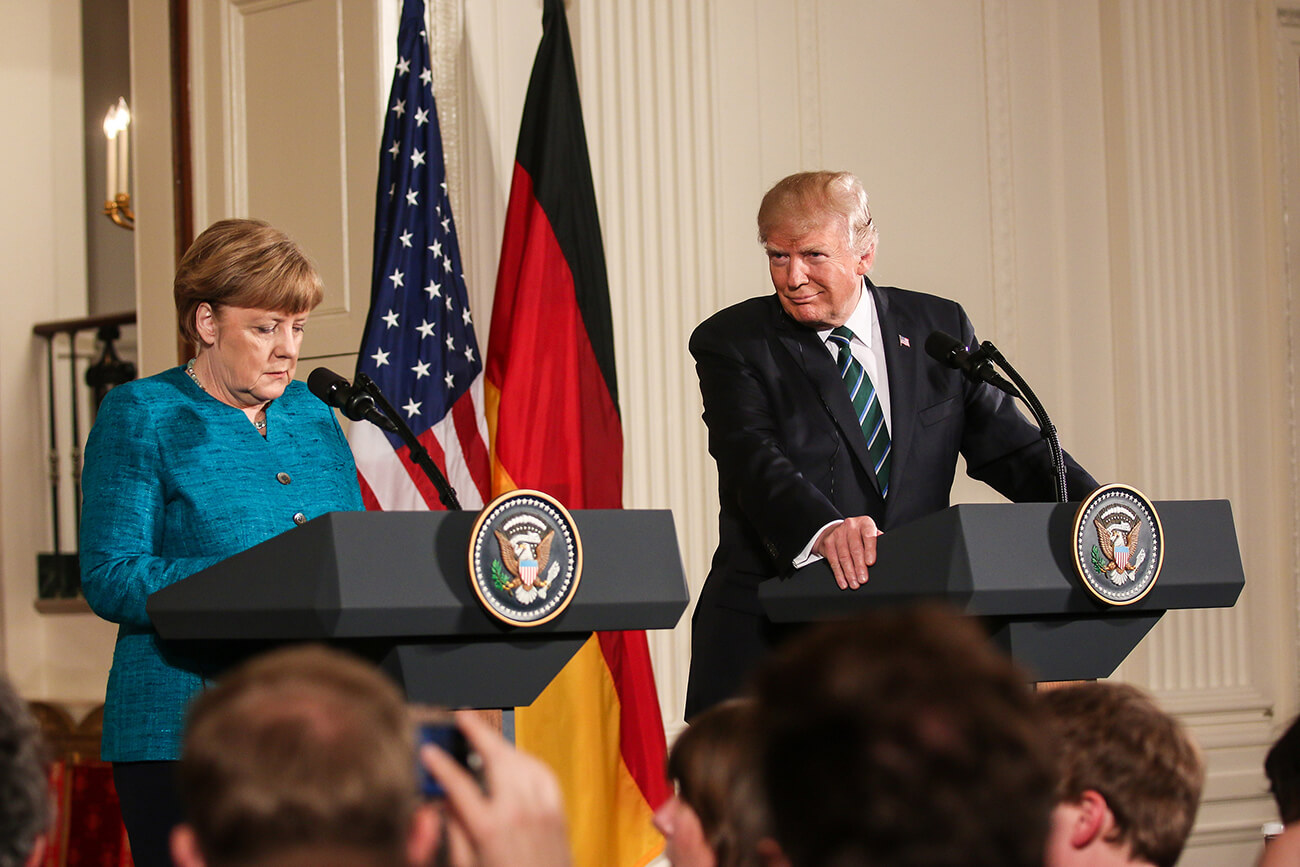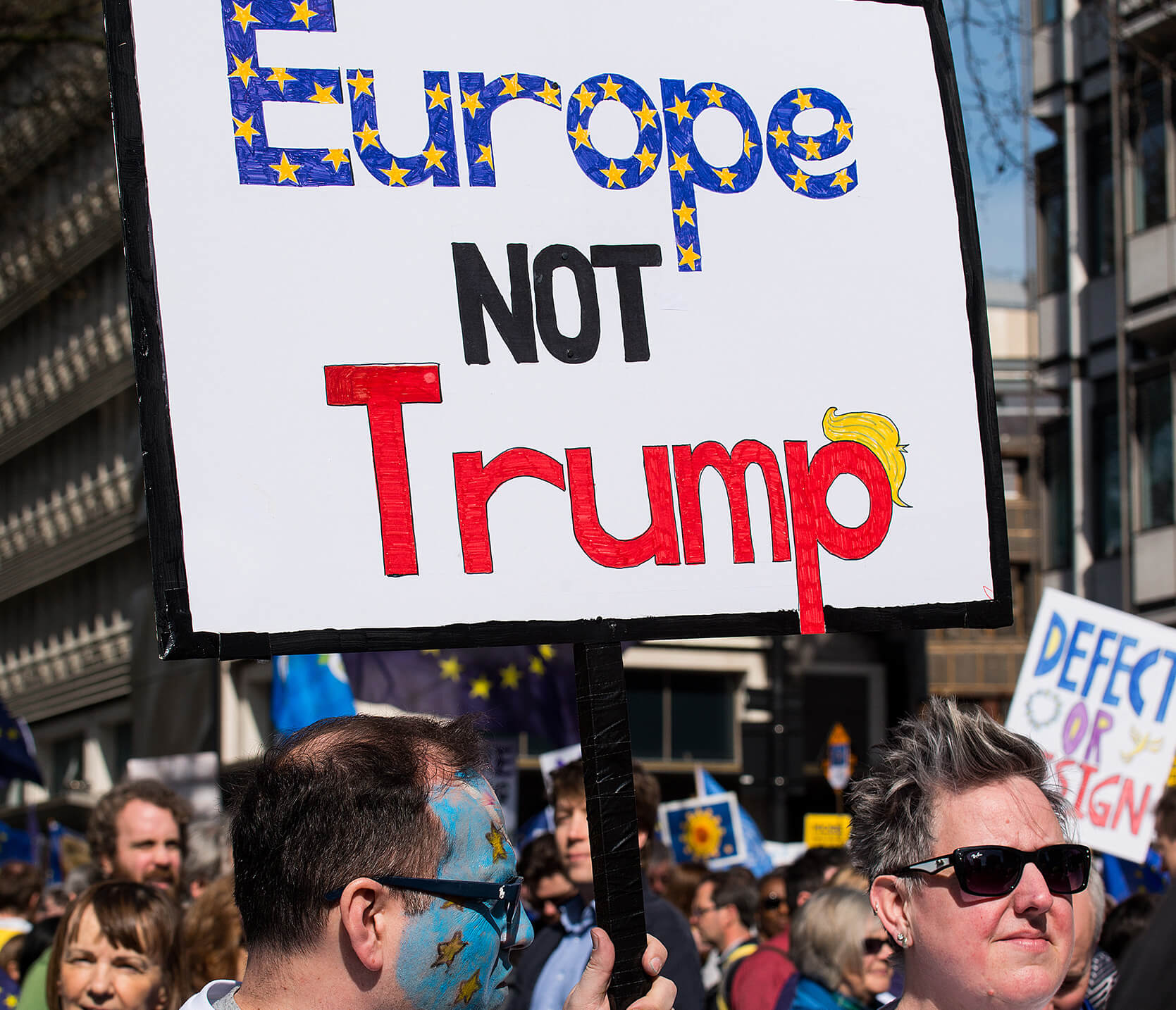There is a strain of conservatism in the United States that suffers from what might be called “Euro envy.”
It is not mainstream, and it was not the conservatism of former presidents Ronald Reagan or either of the Bushes. It has evolved from a hatred of socialist manifestations in European economies.
Sadly, President Donald Trump is the exemplar of this envy; this need to deride Europe and all things European.
Euro envy has its equally foolish counterpoint across the Atlantic that might be called “U.S. disdain.”
Neither would be of any consequence if it were not for the delicate international situation with the deteriorated relations between the United States and Europe, compounded by Europe’s own troubles.
Euro envy, at its purest, revolves around the successes of Europe: its public health systems, its efficient rail system, and its support of fine and performing arts. The belief is that Europe’s social approach cannot be better and somehow it must be found to be wanting.
Some things in Europe do work better, but at a price; a price in taxation and bureaucratic rigidities, which cost the Euro economies in lower growth and higher unemployment.
Anyone who has looked at European health systems knows that they work. Perhaps not perfectly, but well enough and at a lower gross price than their patchier American equivalent. Yet fables persist of people lining up in the streets of London for heart surgery and long waiting lists all over Europe for critical care. These are myths but potent ones.
For public transportation, health care and generous retirement, Europe pays. Recently in Sweden, a colleague who once worked in the White House press corps told me: “We pay half our wages in tax, but we get a lot for it.”
I would add to the downside of European life that it is very hard to fire anyone, that people retire too early and have too many government-guaranteed perks in the workplace like, in some countries, extended maternal leave for both parents.
The obverse, U.S. disdain, features exaggerated emphasis on gun violence, prison conditions, no universal health care, no job security and two-week vacation times.
The European left has always denigrated conditions in America and has unfailingly given short shrift to Republican presidents. They are damned out of the blocks. “Cowboy” is the pejorative thrown at them. This is as unfair and untrue as is the Euro sneering.
Despite these streams of envy, even hatred, the Atlantic alliance has been a thing of beauty in world history, a bulwark defending the cultures and freedoms that are the Western inheritance; the inheritance that has made the liberal democracies such a magnet for the world’s less fortunate. Illegal immigration is the compliment that the hapless pay to the happy.
Trump has swallowed whole the Euro disdainers’ views — they fit well with his nativistic views about the United States.
In one thing though, and it has riled the right for decades, Trump is right: Europe pays too little for its own defense. This is the cudgel that he will wield at the NATO summit. Europe, for all its quality-of-life smugness, depends on the U.S. defense umbrella.
These things make the next two weeks critical in world affairs, and replete with terrible irony. Europe depends on the United States to defend itself against Russia, which has shown designs on all the European countries which were once Soviet vassal states. But the guarantor of European freedom, Trump, is out to trash the European alliance and cozy up to Russia.
The irony does not stop there. Trump wants more money from Europe when he is about to damage its economies with a trade war.
In the next two weeks, there is not much to envy in the European predicament: pay up or face Russia alone. Trump will not have your back.


